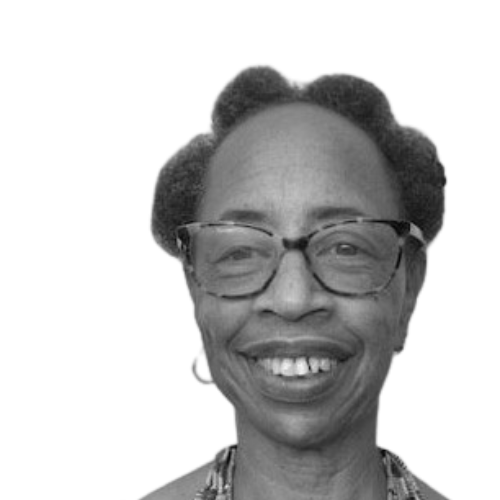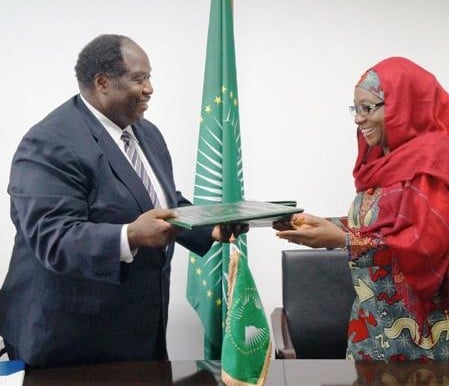Dr. Keith Jennings: July 4, 1959 – Feb. 13, 2021
The first time I met Keith Jennings was at his satellite office – Pascal’s Restaurant in Atlanta, GA. It was 2004 and George W. Bush was running for the presidency, again. My hair was still on fire from 2000, the actual stolen election. I called Beni Ivey, then at the Center for Democratic Renewal, to ask if there was any way I could be of service in the South. She said, “Talk to Keith Jennings.” That’s how I got to Pascal’s.
Keith was welcoming and willing to listen to a half-baked scheme to monitor and protect the Black vote in the South. He was a professional with decades of worldwide experience in protecting human rights and the integrity of elections. All I showed up with were passion and frustration. And yet he said, “Yes. We can make something happen.”
I moved from Oakland to Atlanta and Keith and I launched Count Every Vote. Keith worked his contacts – he rocked two cell phones at a time – and we crisscrossed the South, from Georgia to Alabama to Florida and Louisiana.
Keith had headed up teams that monitored elections all over the world. He was alive to the irony of overseeing democratic processes abroad while they were imperiled in his home country. He was so glad to bring Count Every Vote to grassroots meetings in school basements and community centers and dingy motel meeting rooms. At each gathering we talked about the importance of the upcoming election and the need to both get out the vote and protect it. Keith did the trainings on international standards for election monitoring. Sherri Bevel joined us on the road, along with two of my good friends, Gerald Lenoir and Bob Wing, who were willing to work for free.
I don’t know what the impact of Count Every Vote was. We had no metrics. To say we operated on a shoestring is to cast shade on shoestrings. But Keith did introduce me to good people across the region who were determined to make Black votes matter – including women like Helen Butler and LaTosha Brown, who had already been deep in the trenches for years, laying the foundation for Georgia’s 2020-21 victories. And Keith and I forged a close friendship that lasted till his death. I was more than a decade older than Keith, but I leaned on him like a big brother.
When I opened WhatsApp on January 5, up popped an image of a Georgia peach sticker that said, “I’m a Georgia Voter.” Underneath Keith had written, “I voted for you and for peace and justice and democracy!”
I had talked with Keith about working on a review and careful evaluation of progressive interventions in the 2020 elections. I’m going to miss his voice and perspective on that.
‘The best friend a person could have’
There are dozens of people across at least four continents who believe that Keith was their best friend. And the remarkable thing is that he was. He was the best friend a person could have. He was a prodigious sharer. He shared his contacts, his money, his humor, his frequent flyer miles, his home, his knowledge and wisdom, and most of all his love for Black people. His shoulders were broad to hold space for all the people who cried on them. His generosity of heart encompassed people of high station, folks scrambling to get by, and everything in between.
Keith had been a student radical at Fisk. According to his friends from the way back, if there was a protest or a progressive student initiative in Nashville between the late 1970s and the early ‘80s, Keith had a hand in organizing it. He led protests against apartheid, showed up when there were throngs and when there were just a few, and was arrested at least twice in front of DC’s South African embassy.
Keith went on to get an advanced degree in political science at Clark Atlanta University. He suited up and became a consummate professional. He was at ease with heads of state, diplomats and dignitaries. Yet he never let go of that student radical. That spark of liberation lived on as he knowingly and skillfully carried forward the complex legacies of Malcolm X, Martin Luther King Jr. and African liberation movements.
Keith had an extraordinarily detailed knowledge of the politics of the African continent. People in the U.S. relied on his close-in and current knowledge of the politics of multiple countries and regions. And people on the continent relied on him to interpret the political landscape in the U.S. – especially over the past four years. One of the last video clips I have of Keith is of him trying to explain the outrageous and inexplicable – Trumpism and January 6 – to a Kenyan television audience.
‘Knowledge in the service of justice’
The Friday night before he died, Keith recorded a radio interview on Africa Today with the show’s host, Walter Turner. I knew I would experience another level of loss when I finally worked up the fortitude to listen to the show. But this sense of loss was different. Yes, a friend is gone. But also a truly great mind, capable of weaving together history and hardheaded analysis and the facts and details of how politics plays out both institutionally and on the ground. The interview ranges widely, touching on, among many other things, the African Union, the impact of COVID-19, the unconscionable inequity in vaccine distribution, China’s influence on the continent’s economic development, the Ugandan elections, and Trump’s legacy – beyond dismissing whole nations as shithole countries. Keith underscored one of the main policy challenges facing the Biden administration: we can’t act like the last four years didn’t happen and roam the world telling people how to practice democracy. The man was humble about the scope of his knowledge. Never flashy, no hype, always knowledge in the service of justice.
The last time I saw Keith in person was back in 2017. We talked fairly regularly and in one of our conversations, Keith mentioned that he was going up to Vancouver, BC, to visit Jack O’Dell. I asked if I could tag along. He invited me to come and we spent a few days in the company of a mentor and role model. Jack was deep in his nineties and ailing, but he still had wisdom (and maybe a little gossip) to share. I think Keith and Jack recognized something in each other: they were both kind, generous, brilliant freedom fighters who bore down on moving the necessary work forward without need for constant acclamation. We need more of these brothers.
Was the man a saint? Definitively not. And when some subset of his best friends gather in person we will laugh through our tears as we recall his foibles. For now we remember him as a bridge between continents, peoples, political tendencies, scholars and activists, and generations. A man who loved his family and friends, his mother continent, and his people. But most of all, as one of his many best friends said, we remember Keith as a free Black man. Gloriously free in a land dedicated to unfreedom.
Love and respect, good brother. My deepest love and respect.
Did you enjoy this article?
We're in the middle of our annual fund drive, and this year we're building our own internal infrastructure for subscriptions, meaning more of every dollar pledged goes to fulfilling our mission. Subscribe today to support our work and be a part of Convergence's next evolution.

